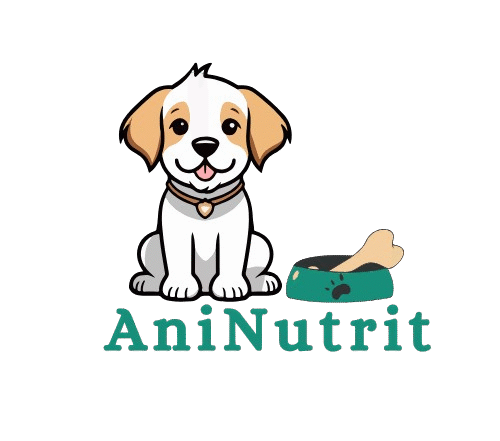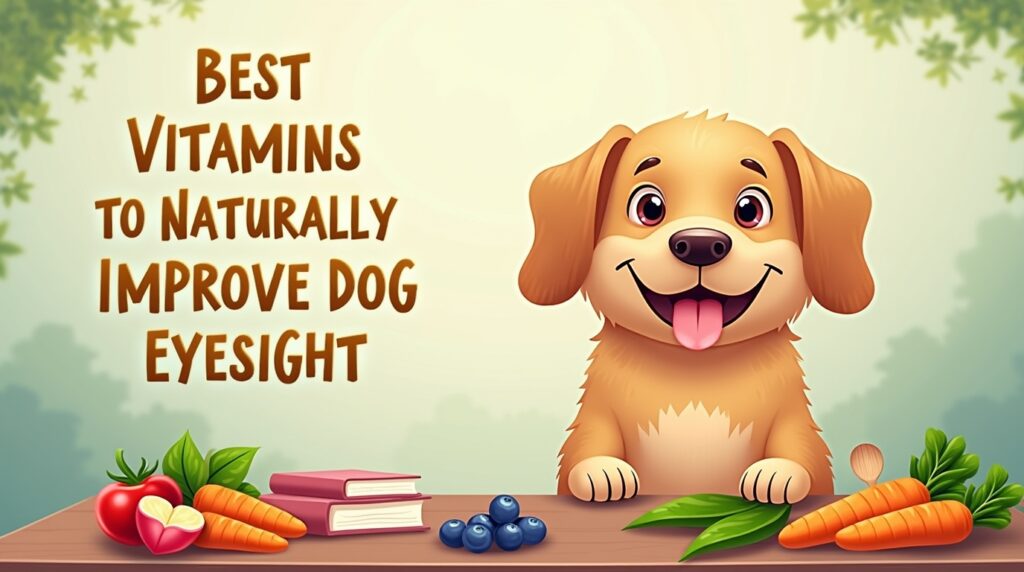Labrador Retrievers are energetic, perceptive, and affectionate canines that flourish when fed a healthy, well-balanced diet. Despite the abundance of commercial dog food, many pet owners are choosing natural, whole-food nutrition to promote the health, longevity, and vitality of their Labradors. The greatest natural, nutrient dense foods for Labradors will be covered in this guide, along with a number of delectable, dog-safe recipes you can make at home.nutrient dense foods for lebrador is including different types of home made food that should be we used in daily routine.
Natural Nutrient Dense Foods for Labrador Retrievers
Labrador Retrievers are one of the most loved dog breeds around the world. They are active, playful, and always ready to join their owners in outdoor adventures. To keep their energy levels high and bodies healthy, they need a diet filled with natural, nutrient-dense foods. Labradors are prone to weight gain, joint issues, and digestive problems if their diet is not balanced. That is why it is important to choose foods that provide vitamins, minerals, and essential nutrients without unnecessary fillers.

1. Why Choose nutrient dense foods for Labradors?
1. Holistic Health Support for nutrient dense foods for lebrador
Vitamins, minerals, antioxidants, and enzymes found as naturient dense foods for lebrador help to strengthen your Labrador’s skin, joints, immune system, and general energy levels. They provide whole-food nutrition free of artificial preservatives and fillers, in contrast to processed kibble.
2. Better Digestion and Weight Control with nutrient dense foods for lebrador
Obesity and digestive problems are common in labradors. Natural diets’ high fiber and nutrient density aid in weight and digestive regulation.
3. Allergy Reduction nutrient dense foods for lebrador
Commercial dog foods often contain common allergens. Natural food eliminates questionable ingredients and lets you customize the diet to avoid specific triggers.
Key Nutrients of nutrient dense for lebrador and Best Natural Sources
Below are the essential nutrient dense foods your Labrador needs, along with natural food sources.
1. Protein – Muscle and Tissue Development
- Sources: Lean meats (chicken, turkey, beef), fish (salmon, sardines), eggs
- Benefits: Supports muscle growth, repair, and immune health
2. Healthy Fats – Energy and Coat Health
- Sources: Fish oil, flaxseed, coconut oil, chicken fat
- Benefits: Enhances brain function, skin condition, and energy levels
3. Fiber – Digestive Health
- Sources: Pumpkin, carrots, green beans, apples (no seeds)
- Benefits: Promotes healthy digestion and bowel movements
4. Vitamins and Antioxidants – Immune Support
- Sources: Blueberries, spinach, kale, sweet potatoes
- Benefits: Strengthens immunity and reduces inflammation
5. Calcium and Phosphorus – Bone Strength
- Sources: Yogurt (unsweetened), eggshell powder, sardines (with bones)
- Benefits: Supports bone and dental health

Top 10 nutrient dense Foods for Labrador Retrievers
1. Lean Meats
- Chicken, turkey, and beef are excellent protein sources.
- Remove skin and fat before cooking; avoid seasoning.
2. Salmon and Sardines
- Rich in omega-3 fatty acids for a shiny coat and heart health.
- Always cook and debone fish if using fresh.
3. Eggs
- A perfect protein; feed boiled or scrambled (without oil or salt).
- Supports skin, fur, and muscle health.
4. Pumpkin
- High in fiber, low in calories.
- Helps regulate digestion and soothe upset stomachs.
5. Sweet Potatoes
- Loaded with vitamins A and C.
- A healthy carbohydrate option for energy.
6. Blueberries
- A powerful antioxidant-rich snack.
- Helps reduce cell damage and inflammation.
7. Carrots
- Great for dental health and eye health.
- Crunchy texture helps clean teeth naturally.
8. Greek Yogurt
- High in calcium and probiotics (only unsweetened, plain yogurt).
- Promotes gut health and strong bones.
9. Brown Rice and Quinoa
- Whole grains that provide fiber and steady energy.
- Avoid overfeeding carbs to maintain ideal weight.
10. Spinach and Kale
- High in iron and antioxidants.
- Boosts immune health and supports organ function.

Natural and Balanced Homemade Recipes for Labradors
Here are a few simple, healthy, and vet-approved recipes you can prepare at home.
1. Chicken & Veggie Power Bowl
Ingredients:
- 1 cup cooked chicken breast (shredded)
- 1/2 cup cooked brown rice
- 1/4 cup steamed carrots
- 1/4 cup steamed green beans
- 1 tsp olive oil
Instructions:
Cook and shred chicken.
Steam vegetables until soft.
Mix everything together and drizzle with olive oil.
Serve warm or store in the fridge for up to 3 days.
Benefits: A balanced meal rich in lean protein, fiber, and healthy fats.
2. Salmon and Sweet Potato Delight
Ingredients:
- 1/2 cup cooked salmon (boneless)
- 1/2 cup mashed sweet potato
- 1 tbsp ground flaxseed
- 1 tbsp plain Greek yogurt
Instructions:
Bake or steam salmon and remove bones.
Boil sweet potato and mash it.
Mix salmon, sweet potato, flaxseed, and yogurt.
Serve cooled.
Benefits: High in omega-3s and great for skin, coat, and joint health.
3. Morning Egg and Veggie Scramble
Ingredients:
- 3 eggs
- 2 tbsp chopped spinach
- 2 tbsp grated carrot
- 1 tsp coconut oil
Instructions:
Heat coconut oil in a pan.
Add eggs and lightly scramble with spinach and carrot.
Let it cool before serving.
Benefits: Quick, nutritious breakfast loaded with protein and vitamins.
4. Beef and Quinoa Stew
Ingredients:
- 1/2 cup ground beef (lean)
- 1/2 cup cooked quinoa
- 1/4 cup peas
- 1/4 cup diced pumpkin
- 1 tbsp chopped parsley (optional)
Instructions:
Brown the ground beef (no oil or seasoning).
Boil quinoa and veggies until soft.
Mix all ingredients and serve warm.
Benefits: Iron-rich stew that supports energy and muscle health.
5. Frozen Blueberry Bites (Treat)
Ingredients:
- 1 cup plain Greek yogurt
- 1/2 cup blueberries
Instructions:
Blend yogurt and blueberries.
Pour into silicone molds or ice cube trays.
Freeze overnight.
Benefits: A cool antioxidant-rich treat for hot days.
Important Feeding tips
1. Portion Control
Labradors love to eat but are prone to obesity.
Calculate calories based on your dog’s weight, age, and activity level. An adult Labrador typically needs 1,000 to 1,500 calories per day.
2. Transition Gradually
When introducing new foods or switching to a homemade diet, do it slowly over 7–10 days to prevent digestive upset.
3. Avoid Toxic Foods
Never feed your Labrador:
- Chocolate
- Onions and garlic
- Grapes and raisins
- Xylitol (artificial sweetener)
- Cooked bones
- Avocados
4. Add Supplements if Needed
Natural diets may require additional supplements like:
- Calcium (eggshell powder)
- Omega-3 oil (fish or flaxseed oil)
- Multivitamins (vet-approved)
When to Consult a veterinarian or Canine Nutritionist
Before making major changes to your Labrador’s diet, consult a veterinarian or canine nutritionist. They can:
Help formulate a balanced home-cooked meal plan
Recommend supplements
- Check for food allergies or intolerances
- Monitor weight and nutritional adequacy
Conclusion
Feeding your Labrador natural, nutrient-dense foods is one of the best ways to promote long-term health and happiness. From lean proteins and fresh vegetables to wholesome grains and superfoods, a well-balanced, whole-food diet can help your Labrador thrive. With the added bonus of homemade recipes, you also get the satisfaction of preparing meals filled with love and nutrition.
By making mindful food choices and working closely with your vet, you can ensure your Labrador lives a longer, healthier, and more vibrant life.
Why Nutrient-Dense Foods Matter
Unlike processed foods, nutrient-dense options give Labradors the building blocks for strong bones, shiny coats, and healthy organs. They also help reduce the risk of obesity and other lifestyle-related problems. A Labrador’s diet should focus on high-quality proteins, healthy fats, and natural sources of vitamins and antioxidants.
Best Natural Nutrient-Dense Foods for Labradors
1. Lean Meats
Chicken, turkey, beef, and lamb are excellent protein sources. Protein helps Labradors maintain muscle strength, supports tissue repair, and keeps them energetic. Always serve cooked, boneless, and unseasoned meat to avoid any harmful effects.
2. Fish
Fish like salmon and sardines are rich in omega-3 fatty acids, which keep your Labrador’s coat shiny and skin healthy. Omega-3 also supports brain development and reduces inflammation in joints, which is very helpful since Labradors can suffer from arthritis in later years.
3. Eggs
Eggs are often called “nature’s multivitamin” because they provide protein, amino acids, and essential vitamins like A, D, and B12. They also support eye health and improve coat texture. A cooked egg once or twice a week is a safe and nutritious treat.
4. Vegetables
Carrots, spinach, broccoli, and green beans are wonderful low-calorie options filled with fiber, vitamins, and minerals. Carrots, for example, support eye health and act as natural teeth cleaners. Spinach offers iron, while broccoli is rich in antioxidants. Always serve vegetables in small, safe portions.
5. Fruits
Apples, blueberries, bananas, and watermelon can be healthy snacks. Blueberries are loaded with antioxidants, which protect your Labrador’s cells from damage. Apples provide vitamins A and C, but make sure to remove the seeds before feeding.
6. Whole Grains and Legumes
Brown rice, quinoa, and lentils are good energy sources. These complex carbohydrates release energy slowly, which helps keep Labradors active throughout the day without causing sudden spikes in blood sugar.
7. Pumpkin and Sweet Potatoes
Both are rich in fiber, vitamins, and beta-carotene. Pumpkin supports digestive health, while sweet potatoes provide slow-burning energy and important antioxidants.
Final Thoughts
Feeding your Labrador Retriever natural, nutrient-dense foods is one of the best ways to ensure a long, active, and healthy life. Always introduce new foods gradually and in the right portions. Remember, Labradors love to eat and can easily become overweight, so balance is the key. By choosing fresh, whole, and natural foods, you are giving your furry friend the best nutrition possible.

Frequently Asked Questions (FAQ)
1. Can I feed my Labrador only homemade food?
Yes, you can feed your Labrador a completely homemade diet, but it must be well-balanced and nutritionally complete.
2. Are raw foods safe for Labradors?
Raw feeding (BARF diet – Biologically Appropriate Raw Food) can be safe if done correctly.
3. How often should I feed my Labrador?
Adult Labradors should be fed twice a day, while puppies may require 3–4 smaller meals daily. 4.
4. What are signs that a food doesn’t agree with my dog?
- Common signs of food intolerance or allergies include:
- Itchy skin or paws
- Diarrhea or vomiting
- Excessive gas or bloating
- Chronic ear infections.
5. Can I mix natural food with commercial dog food?
Yes, you can mix natural food with commercial dog food (known as a hybrid diet).
6. Can Labradors eat raw meat?
It is safer to feed cooked meat to prevent bacterial infections. If you want to try raw feeding, consult your vet first.
7. Are dairy products safe for Labradors?
Some Labradors are lactose intolerant, so it is best to avoid milk. Small amounts of plain yogurt or cheese can sometimes be safe.
8. Which fruits should Labradors avoid?
Grapes, raisins, cherries, and citrus fruits can be toxic and should never be given.
9. How often should Labradors eat eggs?
One or two cooked eggs per week is enough as a healthy treat.
10. Is rice good for Labradors?
Yes, brown rice is a good source of energy and is gentle on the stomach when fed in moderation.


